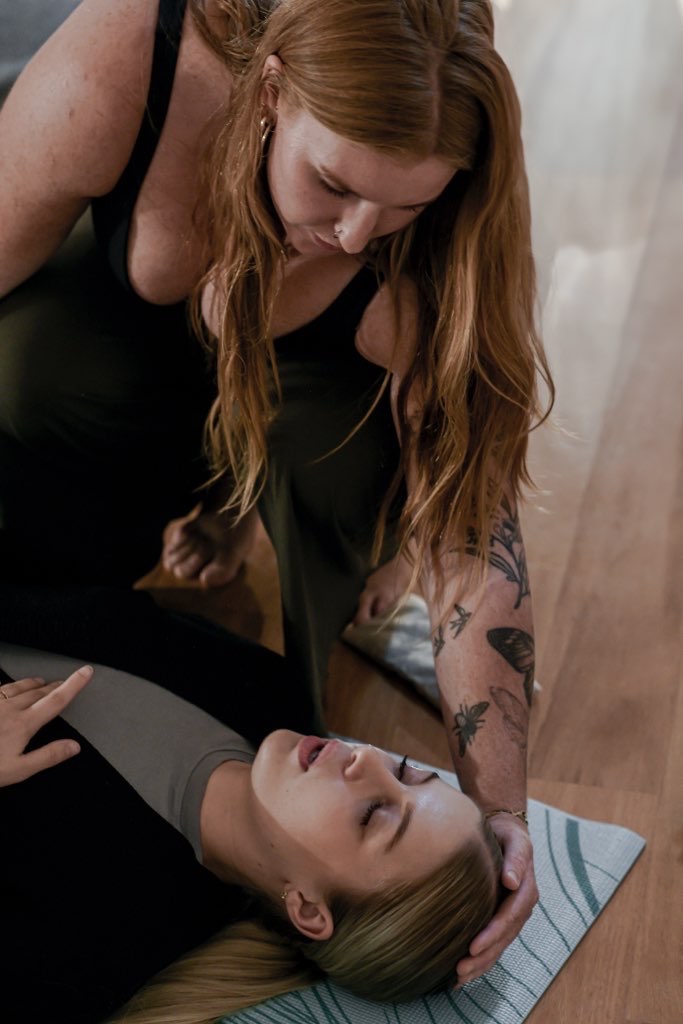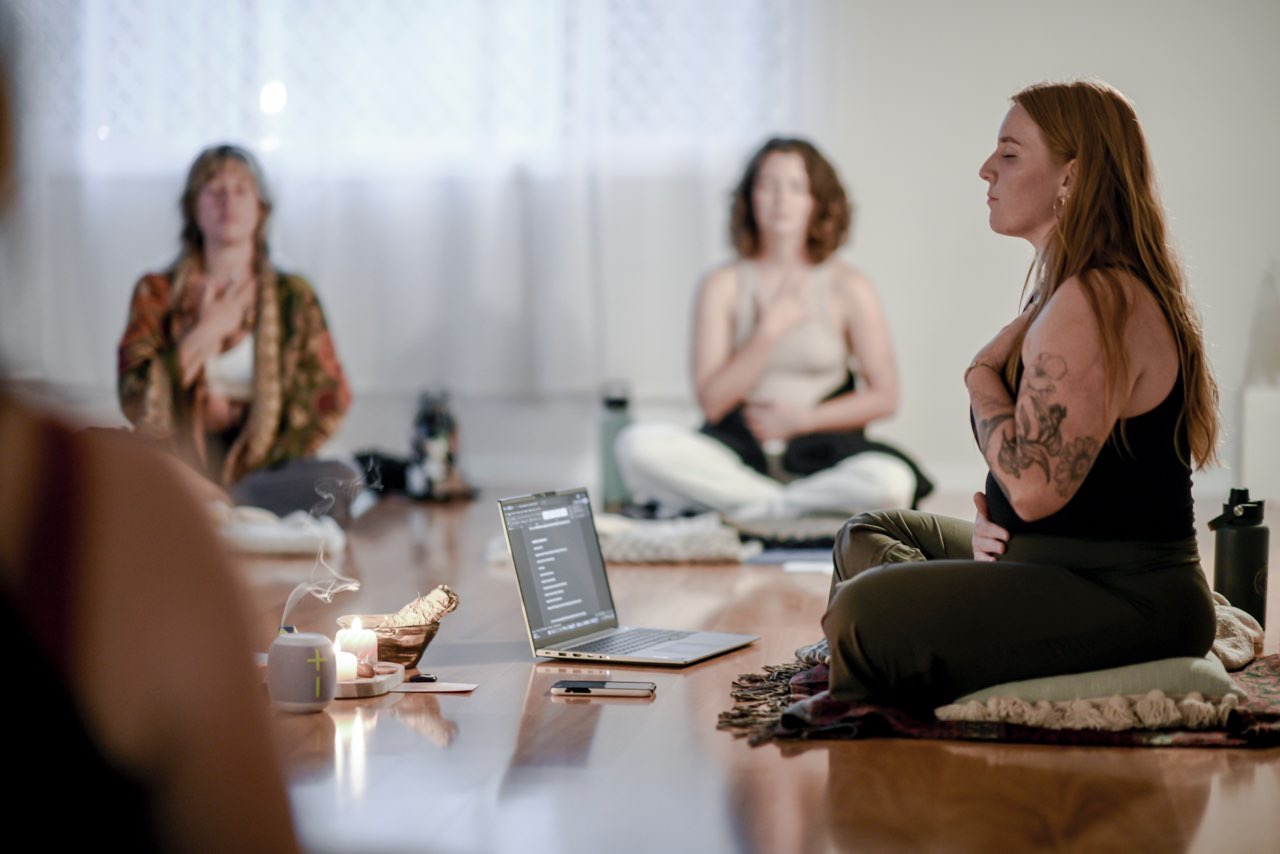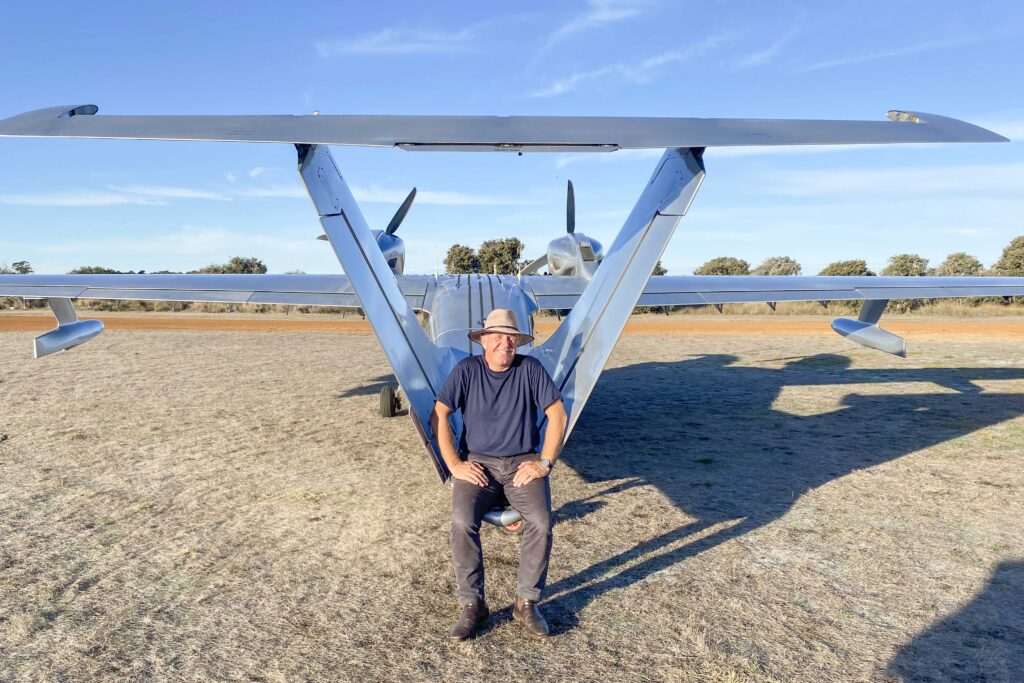Breathwork facilitator Rachel Vibart during one of her sessions in Esperance. Photo: supplied.
As the holistic health movement gains traction in Australia, breathwork is becoming an increasingly popular therapy, and now some Esperance locals are embracing its power and healing abilities too.
The therapeutic practice was introduced to Esperance’s Rachel Vibart on a trip in Bali a couple of years ago.
Ms Vibart said she was initially fearful to try it but it took just one session for her to become hooked and from there she began her training as a breathwork coach.
“The breath is so powerful in the sense we have the opportunity to negotiate, manipulate and navigate this life force energy within us — it’s this tool we can use to move through things we haven’t dealt with and heal,” Ms Vibart said.

“My first session I had, as most facilitators will say, an out of body experience — mine was definitely like that and mine was definitely very healing as well.
“I moved through a lot of trauma which I had held onto through my younger years.”

Ms Vibart now facilitates her own classes at the Cannery Arts Centre which she said had attracted a range of people, from first timers to those with a lot of emotion and trauma.
While breathwork may not always be relaxing, she said it is empowering, a way to find inner strength and to connect to oneself and others.
“We are in a world where we are starving for connection and when you have someone who decides to break that barrier and be like well this has happened in my journey, the other person goes ‘wow I’ve actually been going through something similar’,” she said.
“You realise that you are not alone and that there is so much in this world still.

“It’s such a blessing to witness and be like ‘look at you go, you’re doing it’.
“It’s awesome — it just brings me so much joy.”
Ms Vibart does not label her breathwork but countless breathwork techniques exist, some of which are used in clinical settings too.
Esperance based psychotherapist Christopher Nicholls has a background in suicide bereavement and said breathwork was mainly used by trauma specialists.
He said breathwork in general improved respiratory function, circulation and digestion but said deep breathwork could induce altered states of consciousness, like what Ms Vibart experienced in Bali.

“As therapists we don’t really know what we are going to get until people turn up… if it’s an everyday kind of stress I would say take up some breathing technique like yoga,” Mr Nicholls said.
“I tend to use [deep breathwork] in a trauma situation and very often it’s a grief situation — people are in shock… quite literally stunned and it affects their whole nervous system.
“It’s a way of trying to coax their whole system back to normal.”
Mr Nicholls said he did not often use breathwork in his practice but said partaking in breathwork came down to individual goals, needs and experiences.
“Like any therapy you need to ask, ‘is this the right therapy for me?’” he said.


